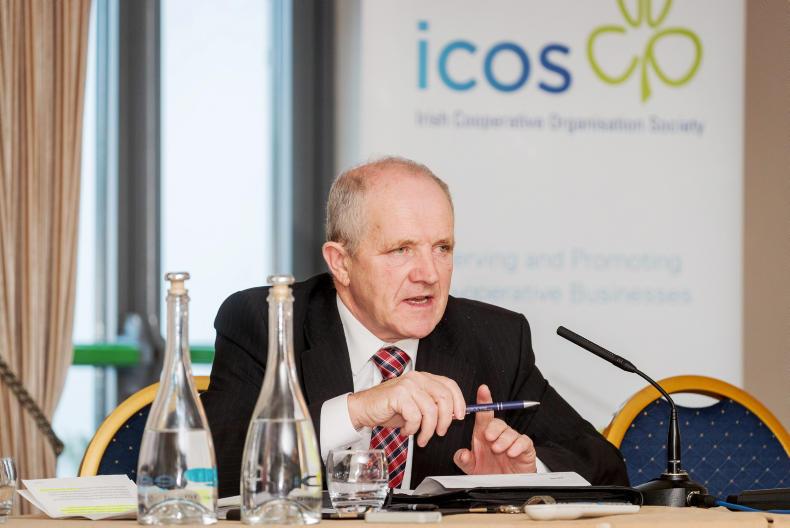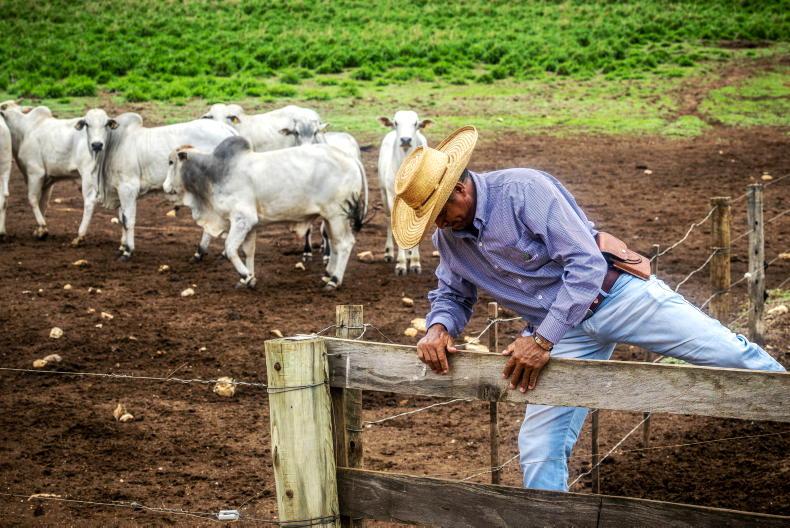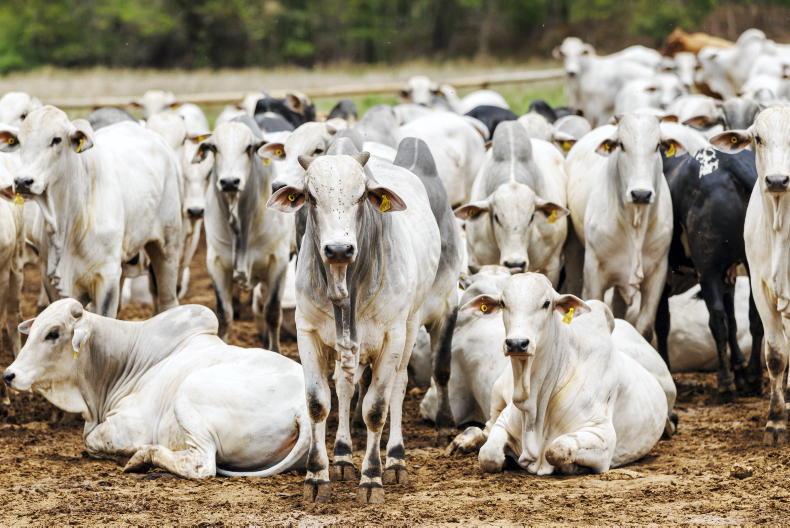A suspension of the article 50 negotiation period is the only viable solution to avoid the disastrous consequences of a no-deal Brexit, ICOS has said. This position was put forward at a meeting between members of the EU Commission’s Brexit Negotiation Team and the Brexit Task Force within Copa Cogeca.
Responding to this week’s events in the UK, ICOS said that the industry is gravely concerned at the disarray which now exists following from the overwhelming defeat of the recent EU-UK proposition put before the House of Commons by Prime Minister Theresa May.
ICOS said it will be further highlighting the concerns raised in meetings with EU Chief Negotiator, Michel Barnier and his team over the coming weeks.
“The House of Commons’ vote is a clear signal that the UK Government must rethink their red lines and alter their approach to Brexit,” a statement from ICOS reads. “Our members urge all involved to use this opportunity to move in a new direction, including the UK seeking full and permanent membership of the EU Single Market and Customs Union, which is supported by a significant proportion of the UK Parliament, citizens and businesses.”
ICOS is also calling for a dedicated Brexit support fund to be established within the EU’s structural and Investment funds, with the aim of helping European farmers and agri-food businesses through this period of adjustment and market instability while ensuring food security for consumers.
The Irish Co-operative Organisation Society (ICOS) represents over 130 co-operatives in Ireland whose associated businesses have a combined turnover in the region of €14 billion.
EU Contingency plans
The EU’s contingency plans for a no-deal Brexit were presented to the Copa Cogeca Brexit Task Force on Wednesday by John Watson from the European Commission Secretariat General.
However ICOS says the plans are ‘bare bones’ arrangements that do not offer the level of transition envisioned with the Withdrawal Agreement.
“There are no special waivers to allow for roll-on/roll-off exporting through UK ports to continue and nothing is said about the Northern Ireland border and whether the EU would intend regulatory checks to be applied on goods entering Ireland,” ICOS president Michael Spellman said. “It won’t be possible to sufficiently mitigate the resulting damage of a no deal Brexit through public and private sector contingency planning, rather a long-term and stable agreement must be reached.”
The EU’s contingency measures include:
Proposed legislation on transport, to ensure basic air and road connectivity by allowing for the temporary (12 months) provision of certain air services between the UK and the EU and allowing UK road haulage operators to temporarily (nine months) carry goods into the EU, provided the UK confers equivalent rights to EU road haulage operators. Proposed legislation on phytosanitary standards (SPS) and customs, regarding the listing of the UK as a third country so that it can continue to import and export agri-food products to the EU (with the legislation to be finalised in February) and extending the relevant time limits for customs declarations on goods entering or leaving the Union’s customs territory to the UK. Read more
Farmers to take Brexit hit before Government acts
A suspension of the article 50 negotiation period is the only viable solution to avoid the disastrous consequences of a no-deal Brexit, ICOS has said. This position was put forward at a meeting between members of the EU Commission’s Brexit Negotiation Team and the Brexit Task Force within Copa Cogeca.
Responding to this week’s events in the UK, ICOS said that the industry is gravely concerned at the disarray which now exists following from the overwhelming defeat of the recent EU-UK proposition put before the House of Commons by Prime Minister Theresa May.
ICOS said it will be further highlighting the concerns raised in meetings with EU Chief Negotiator, Michel Barnier and his team over the coming weeks.
“The House of Commons’ vote is a clear signal that the UK Government must rethink their red lines and alter their approach to Brexit,” a statement from ICOS reads. “Our members urge all involved to use this opportunity to move in a new direction, including the UK seeking full and permanent membership of the EU Single Market and Customs Union, which is supported by a significant proportion of the UK Parliament, citizens and businesses.”
ICOS is also calling for a dedicated Brexit support fund to be established within the EU’s structural and Investment funds, with the aim of helping European farmers and agri-food businesses through this period of adjustment and market instability while ensuring food security for consumers.
The Irish Co-operative Organisation Society (ICOS) represents over 130 co-operatives in Ireland whose associated businesses have a combined turnover in the region of €14 billion.
EU Contingency plans
The EU’s contingency plans for a no-deal Brexit were presented to the Copa Cogeca Brexit Task Force on Wednesday by John Watson from the European Commission Secretariat General.
However ICOS says the plans are ‘bare bones’ arrangements that do not offer the level of transition envisioned with the Withdrawal Agreement.
“There are no special waivers to allow for roll-on/roll-off exporting through UK ports to continue and nothing is said about the Northern Ireland border and whether the EU would intend regulatory checks to be applied on goods entering Ireland,” ICOS president Michael Spellman said. “It won’t be possible to sufficiently mitigate the resulting damage of a no deal Brexit through public and private sector contingency planning, rather a long-term and stable agreement must be reached.”
The EU’s contingency measures include:
Proposed legislation on transport, to ensure basic air and road connectivity by allowing for the temporary (12 months) provision of certain air services between the UK and the EU and allowing UK road haulage operators to temporarily (nine months) carry goods into the EU, provided the UK confers equivalent rights to EU road haulage operators. Proposed legislation on phytosanitary standards (SPS) and customs, regarding the listing of the UK as a third country so that it can continue to import and export agri-food products to the EU (with the legislation to be finalised in February) and extending the relevant time limits for customs declarations on goods entering or leaving the Union’s customs territory to the UK. Read more
Farmers to take Brexit hit before Government acts








SHARING OPTIONS